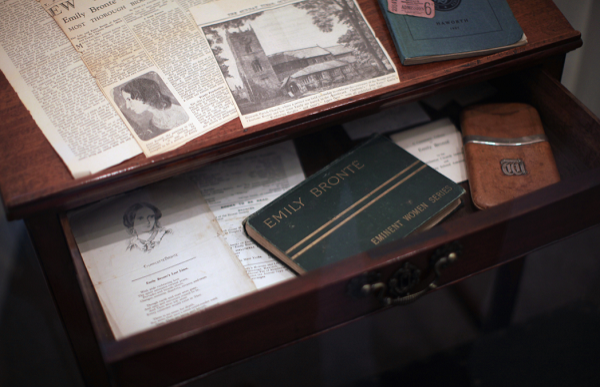Did Emily Brontë Have Autism? Author Suffered From Spectrum Disorder, Biography Says

English novelist Emily Brontë may have suffered from a form of autism formerly known as Asperger syndrome, according to her biographer.
During an event at the Edinburgh International Book Festival on Sunday in the U.K., Claire Harman — author of recent biography “Charlotte Brontë: A Life” — discussed many of Brontë’s traits, some of which she said resembled symptoms related to Asperger’s, the Guardian reported. Brontë’s personality characteristics and behaviors — like her genius, her dislike of leaving home, social discomfort and sudden bursts of anger and frustrations — could have brought about a prognosis of the disorder if she was alive in more modern-day times, Harman added.
Harman recounted one of the “Wuthering Heights” author’s temperamental instances that was documented by biographer Elizabeth Gaskell, who wrote in an 1857 biography on Charlotte Brontë about a time her younger sister left the family dog “half blind and stupefied” after punching the dog in the face for dirtying the laundry. Harman said the incident was “just a sign of Emily’s strength and character.”
“It is actually very disturbing. I think Charlotte and everybody was quite frightened of Emily. I think she was an Asperger’s-ey person,” Harman said during the event. “She was such a genius and had total imaginative freedom… Containing Emily, protecting Emily, not being alarmed by Emily, was a big project for the whole household. She’s an absolutely fascinating person – a very troubling presence, though.”
Emily Brontë was even more reclusive than her sister Charlotte, who penned the famous novel “Jane Eyre” among other nostalgic literary works, Harman said. Emily Brontë hated leaving the house, said Harman, which could have been an indicator why the Brontë children wanted to be homeschooled in their Haworth, West Yorkshire house.
Autism Speaks describes the behavior of those suffering from Asperger’s syndrome as limited or inappropriate social interactions, having “robotic” or repetitive speech, lack of eye contact or reciprocal conversation, one-sided conversations, tendency to discuss self rather than others. The disorder was considered one of several previously separate subtypes of autism for since its discovery until 2013 when it that was folded into the single diagnosis autism spectrum disorder (ASD).
Although Asperger’s was not discovered until the 1940s, Brontë wasn’t the only renowned author to be suspected of the disorder. British novelist Jane Austen, Sir Alfred Hitchcock, H.C. Andersen, George Orwell and plenty of others were said to have had traits similar to those of people suffering from the disorder.
© Copyright IBTimes 2024. All rights reserved.






















